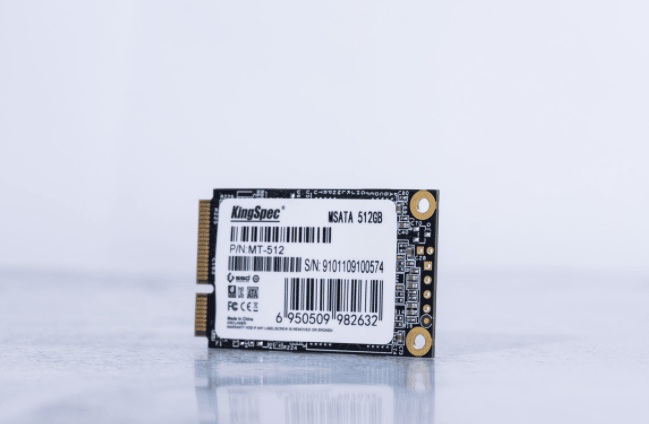News
Site Editor
 Site
https://kingspec.usa02.wondercdn.com/uploads/image/6307135a29359.png
When it comes to solid-state drives (SSDs), the habits that were common with traditional mechanical hard drives (HDDs) may not be suitable. SSDs work differently, and as such, they require different strategies to ensure optimal performance and longevity. Below are essential tips for using and maintaining your SSD.
Site
https://kingspec.usa02.wondercdn.com/uploads/image/6307135a29359.png
When it comes to solid-state drives (SSDs), the habits that were common with traditional mechanical hard drives (HDDs) may not be suitable. SSDs work differently, and as such, they require different strategies to ensure optimal performance and longevity. Below are essential tips for using and maintaining your SSD.
Best Practices for Use and Maintenance of SSDs
Views: 12903
Author: Site Editor
Publish Time: 2021-05-25
Origin: Site
When it comes to solid-state drives (SSDs), the habits that were common with traditional mechanical hard drives (HDDs) may not be suitable. SSDs work differently, and as such, they require different strategies to ensure optimal performance and longevity. Below are essential tips for using and maintaining your SSD.
1. Small Partitions and Fewer Partitions
One key difference with SSDs is their garbage collection mechanism. When files are deleted on an SSD, the entire area where the invalid data is stored needs to be cleared. The process involves collecting valid data from the area, moving it to a free space, and then clearing the "problem area" entirely. This means that small partitions and fewer partitions can enhance performance.
Why Small Partitions?
When partitioning an SSD, it’s advisable not to allocate the entire capacity of the drive. For instance, a 128GB SSD may be advertised as 120GB, leaving a small portion of space reserved for optimization tasks like wear leveling, garbage collection, and bad block mapping. To further optimize performance, users can create partitions smaller than the available capacity, say around 100GB for a 128GB drive, to leave even more space for the SSD's internal processes.
Why Fewer Partitions?
Creating fewer partitions helps avoid partition misalignment issues. Misaligned partitions can negatively affect the performance of the drive, particularly at partition boundaries. Too many partitions can also waste space on an SSD that may already have limited capacity. Using partitioning tools like those built into Windows 7 and later ensures proper 4K alignment, optimizing the SSD’s performance.
2. Reserve Enough Free Space
As the storage on an SSD fills up, its performance can degrade. When a partition is constantly over 90% full, it increases the likelihood of performance issues, as the drive struggles to find free blocks to write data. Many SSDs can suffer from performance slowdowns if left in this state for extended periods.
To prevent this, it’s important to regularly clean up unused files and set virtual memory appropriately. For large files like movies, music, and other media, it's a good idea to store them on a mechanical hard drive (HDD), leaving the SSD's storage for the operating system, applications, and frequently accessed data.
3. Refresh the Firmware Regularly
The firmware of an SSD plays a crucial role in its performance and longevity. Firmware is essentially the internal software that manages the SSD's operations, much like a motherboard’s BIOS. The firmware dictates how the drive handles data, manages wear on the flash memory chips, and performs garbage collection.
Manufacturers periodically release firmware updates that include advanced algorithms to reduce unnecessary write operations, maintain drive performance, and extend the SSD's lifespan. Regularly updating the firmware ensures that your SSD remains stable, performs optimally, and benefits from any bug fixes or improvements the manufacturer has made.
4. Utilize the TRIM Command
The TRIM command is one of the most important tools for SSD maintenance. When data is deleted, TRIM tells the SSD which blocks are no longer in use and can be wiped clean. This allows the SSD to efficiently manage its storage, ensuring that new data can be written quickly without having to first clear old, invalid data.
Using TRIM regularly helps to restore the SSD's performance to near factory levels, particularly in systems that handle a large amount of read/write activity. Most modern operating systems, including Windows 7 and above, support the automatic execution of TRIM, but users can also manually trigger it when necessary.
The Growing Need for SSDs in the Digital World
As digitalization continues to expand, the need for fast, reliable, and high-capacity data storage is more pressing than ever. SSDs have become essential in modern computing due to their speed and efficiency. If you are in the market for a high-quality SSD, KingSpec offers a wide range of portable SSDs designed for both personal and professional use. Visit our website to explore our SSD options.
By following these best practices for SSD use and maintenance, you can ensure that your drive performs optimally over its lifetime. Proper partitioning, maintaining free space, updating firmware, and using the TRIM command are all simple steps that can significantly extend the life of your SSD.
If you're looking for a reliable SSD solution, contact KingSpec today for high-quality products designed to meet your data storage needs. We’re here to help you enhance the speed and performance of your systems with the best SSDs on the market.






















